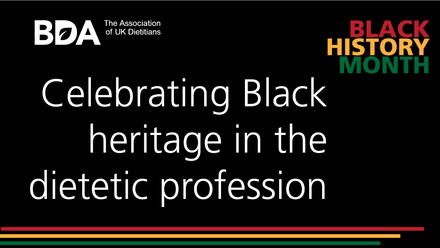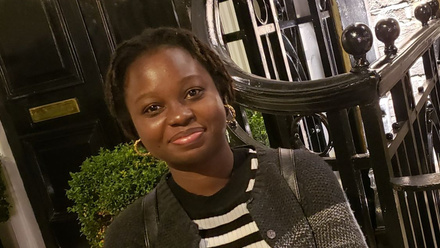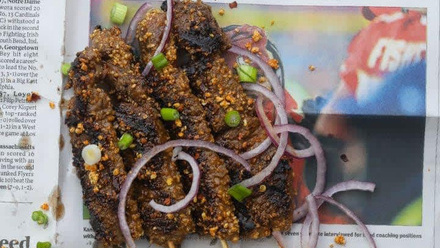I was a very fussy eater as a kid. A vegetarian raised in a Jamaican meat-eating household, I was often the last person at the table, with every visible spice or seasoning pushed to the edge of my plate. Ackee and saltfish, Jamaica’s national dish and a weekly staple in our home, would have every piece of saltfish, onion and pepper removed. My eating habits finally caught up with me during a family trip to Sudan. Even with plenty of food around, I was so fussy that I barely ate, and ended up fainting from a poor intake and ongoing iron deficiency anaemia. That was my wake up call to finally start experimenting with new foods.
That experience sparked my interest in nutrition. Despite my fussiness, I’d always loved watching cooking programmes with my mum and now I had the curiosity to learn how food impacts health. I jumped straight in, studying GCSE and A Level Home Economics, followed by a BSc in Public Health Nutrition, PG Dip in Dietetics and finally a MSc in Nutrition. I’ve explored many cuisines throughout my cooking journey but I always return to Jamaican food. It feels like home.
During my training in the North of England, I never once saw a Black dietitian. I rarely saw a Black patient. I vividly remember the first Black patient I met on the wards, an African man with pancreatitis who had never spoken to someone familiar with the foods he cooked at home. He’d always been advised to follow a Mediterranean diet but no one had shown him how to adapt his own dishes to suit his diagnosis. That moment was pivotal. I realised that my lived experience as a Black woman born in the UK to Jamaican immigrant parents could help me support people who looked like me in ways others couldn’t.
When I started my role as a weight management and bariatric dietitian in Birmingham, I wasn’t prepared for the impact of walking into a hospital and seeing staff and service users who looked like me. It was comforting. Validating. A sense of belonging I hadn’t felt elsewhere. We’re still few and far between but I’m proud to be that Black representation for students and newly qualified dietitians entering the profession.
The things that make me different are the things that have made me the dietitian I am today. Being Black in the North, where microaggressions and cultural ignorance were daily realities, taught me resilience, empathy and the value of representation. Those moments of being overlooked didn’t break me, they sharpened my purpose. I’ll always be proud of how my cultural background shapes the way I work, helping me build real, meaningful connections. My hope for the future of dietetics is one where diversity isn’t an exception but the norm - where patients feel seen and aspiring dietitians know there’s space for them to thrive.




